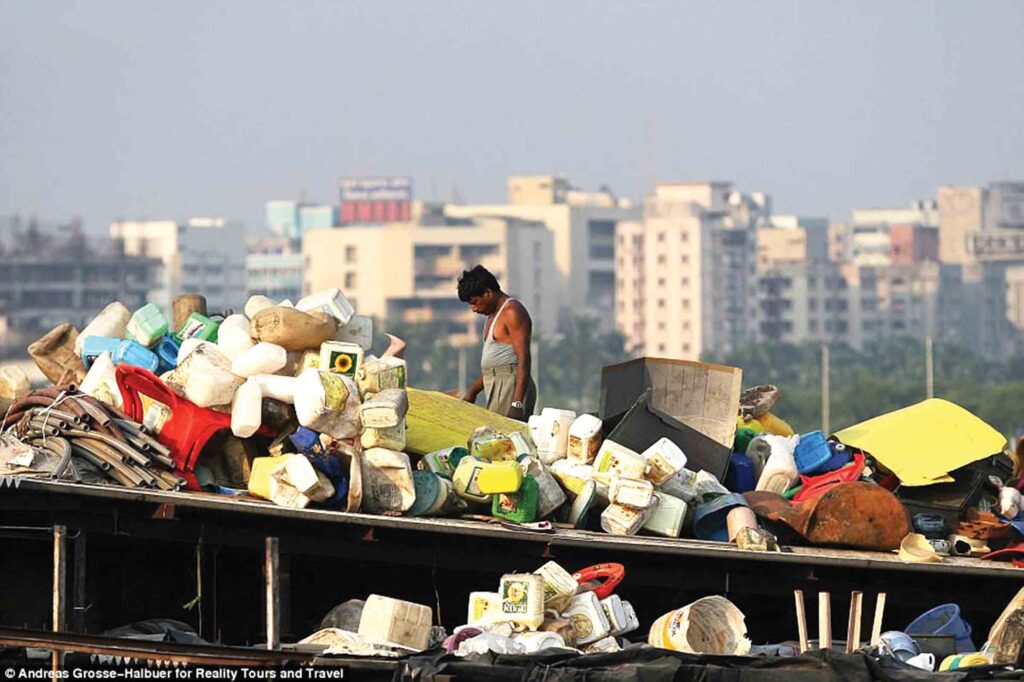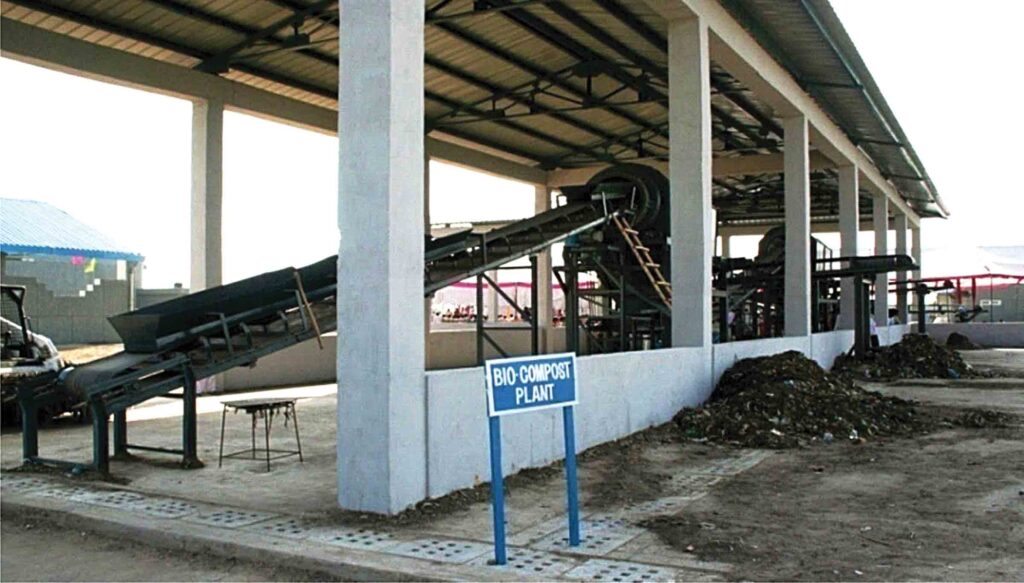- Cover Story
- Governance
- Globe Scan
- Corruption
- State Scan
- Talk Time
- Cover Story
- Governance
- Globe Scan
- Corruption
- State Scan
- Talk Time
Recent Posts
© Copyright 2007 - 2023 Gfiles India. All rights reserved powered by Creative Web INC.GovernanceThose who pollute should pay
The success of the Swachh Bharat Mission depends on the ability of public bodies to build effective systems and of the public to adhere to those systems
Ashok LavasaMarch 6, 20164 Mins read438 Views
 Written by Ashok Lavasa
Written by Ashok LavasaTHE Swachh Bharat Mission is a flagship programme of the government that is associated with the prestige and image of the country and the self-respect and dignity of Indians. It aims at improving standards of living, providing adequate infrastructure and reorienting habits and behaviour to contribute to clean surroundings in a growing economy facing wide disparities in income and lifestyles and struggling to meet the inadequacies of public infrastructure. In a large measure, the success of the programme depends on the ability of public bodies to build effective systems and of the public to adhere to those systems. Improving public participation in the Mission and making it sustainable has been a key priority of the Prime Minister.
There are three primary challenges associated with the Mission:
1. How to bridge the gap between personal hygiene and public sanitation. Niji safai aur sarvajanik swachhata ke beech ka faasla kaise meetaya jaye? Unless people become concerned about the cleanliness of their surroundings as they are about personal cleanliness, it is difficult to expect them to participate in a Mission that cannot succeed without their wholehearted involvement.2. How to introduce the polluters-to-pay principle (Jo kare so bhare ka siddhant) in waste management. Increasing urbanisation, rapidly changing lifestyles and the shift from durability to disposability in consumer goods is bound to hike the generation of waste and enormously increase the pressure on public waste management systems. The urban local bodies (ULB) would not be able to cope with it. To make this arrangement sustainable, the equation between those who generate waste and those who are responsible for managing it would have to be redrawn. Those who pollute must pay in proportion to the pollution load that they cast on public systems. Besides, bulk generators of waste must participate in waste management so that they augment the total resources deployed for waste management and reduce the burden on the overstretched ULBs.

Citizens, RWAs and big commercial establishments and other generators of bulk waste would have to ensure segregation at source 3. How to stop treating waste as a burden, a liability, a nuisance and start seeing it as a resource. (Kude ko samasya nahin sansadhan samjhen.) This would require not only the return to the basic principles of three ‘R’s—Reduce, Reuse and Recycle— but also evolve business models that turn waste management into a viable economic activity so that the exploitation of fresh resources is also reduced.
Considering the enormity of the problem of waste generation as the pace of urbanisation increases and disposable income leads to growing consumerism, the regulatory regime governing the waste management system will require a radical change. The capital required for augmenting waste collection and management infrastructure may not be easily forthcoming in the near future. This would necessitate a participatory model of responsibility sharing in which citizens, resident welfare associations, market associations and big commercial establishments and other generators of bulk waste would have to ensure segregation at source. They would also have to take on the responsibility of decentralised processing or transportation, wherever feasible. Bulk waste generators, such as hotels, hostels, banquet areas and so on, would have to set up their own facilities for bio-methanation, or composting, so that the load on ULBs is reduced and waste management can be done in a cost-effective manner.
The capital required for augmenting waste collection and management infrastructure may not be easily forthcoming in the near future
ONE of the oft-repeated criticisms of the waste management regime is that it is governed by ‘feeble’ laws that are implemented by ‘weak’ organisations lacking authority, wherewithal and often inclination for enforcement. This, obviously, requires a major overhaul of the relevant laws, rules and regulations. There is an urgent need to decriminalise pollution and introduce civil monetary liability as a deterrent. Those who violate must compensate society by paying a penalty that could be utilised for taking remedial measures. Prosecution leading to imprisonment should be reserved for grave violations causing substantive damage to the environment. Monetary penalty should be severe and swift, including spot fines. Till that is done, state governments and municipal authorities will have to use existing rules to make the enforcement mechanism more effective, as has been done by some municipal authorities.

Bio-composting is required to reduce filth in public places and make processing more efficient IN order for this new regime to take roots, it is necessary to understand the nature and character of the waste generated and ensure scientific management that is driven by adopting alternative technologies. Nearly half of our waste (some estimates put it at almost 65 to 70 per cent in residential areas) is wet waste that can be easily converted into ethanol, methane or compost. This can be done at the household level, the colony level or the institutional level. This holds the key to the success of modern waste management. Nothing short of a bio-composting revolution is required to reduce filth in public places, reduce the burden of segregation at the processing level and make processing more efficient. Once we stop mixing wet waste with dry waste, it would become easier to collect dry waste, whether plastic, glass, electronic, biomedical or construction and demolition waste, and take it for processing. This will have to be supplemented by strict implementation of the extended producers’ responsibility, which makes them accountable for collecting the waste that the disposal of the products manufactured or marketed by them causes. This makes the producer a stakeholder in waste management like bulk generators.
There is an urgent need to decriminalise pollution and introduce civil monetary liability as a deterrent. Those who violate must compensate society by paying a penalty
All the above challenges, trends and approaches are equally valid for the success of the Mission. Massive efforts in a systematic way are being made by the government, involving different sections of society. As we learn from the mistakes of the past, we have to convert the drive provided by the Prime Minister into a sustainable process that acquires momentum and efficacy. The tendency for excessive consumption, the senseless withdrawal of groundwater and water flowing from glaciers and springs will have to be curtailed. The insensitivity with which precious food is converted into refuse will have to change. Only then can we move towards a society that burdens the earth for its needs, and not for its unending greed.
The writer is Secretary, Ministry of Environment, Forests and Climate Change
Recent Posts
Related Articles
GovernanceNewsBackdoor entry of Private players in Railway Production Units ?
Written by K. SUBRAMANIAN To Shri G C Murmu C&AG Dear Shri Murmu,...
ByK. SUBRAMANIANFebruary 22, 2024GovernanceNailing Labour to The Cross
Written by Vivek Mukherji THEY grease the wheels of India’s economy with their...
ByVivek MukherjiMay 5, 2020GovernanceBig Metal Momentum
Written by GS Sood PRECIOUS metals especially gold and silver are likely to...
ByGS SoodMay 5, 2020GovernanceStrengthening Social Enterprise Ecosystem: Need for systemic support from the Government
Written by Jyotsna Sitling and Bibhu Mishra THE world faces several challenges today....
ByJyotsna Sitling and Bibhu MishraMay 5, 2020 - Governance
- Governance



























































